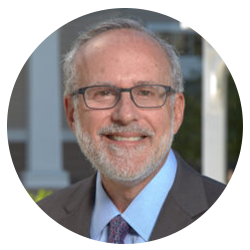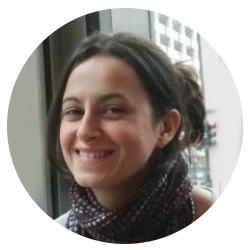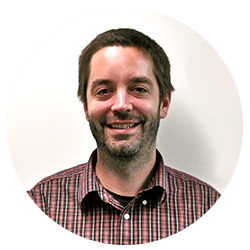2019 Jack Spivack Excellence in Neuroscience Awards Announced
Mr. Spivack established these awards in 2013 to recognize and support the research of outstanding BUSM faculty conducting either clinical or basic research in Parkinson’s (PD), Alzheimer’s (AD), Chronic Traumatic Encephalopathy (CTE) and other neurological disorders.
 Robert Stern, PhD, is the recipient of the 2019 Distinguished Neuroscientist Award.
Robert Stern, PhD, is the recipient of the 2019 Distinguished Neuroscientist Award.
Dr. Stern, an internationally recognized clinical neuroscience researcher, is professor of Neurology, Neurosurgery, and Anatomy & Neurobiology. Also he is director of the Clinical Core of the NIH-funded BU Alzheimer’s Disease Center and co-founder and director of Clinical Research for the BU CTE Center. His current research focuses on developing methods of diagnosing CTE during life and examining potential risk factors for the disease.
Dr. Stern is the lead investigator of the seven-year, multi-site longitudinal DIAGNOSE CTE Research Project, funded by NINDS. His other major area of funded research includes the detection, diagnosis and treatment of AD. He and his team have been collaborating with investigators worldwide in the development and study of novel and existing fluid biomarkers for the detection of CTE and AD.
A member of BUSM since 2005, Dr. Stern has been continually funded through numerous NIH and other national grants for 30 years, has more than 200 peer-reviewed publications, and is the co-editor of two textbooks. He received his BA in psychology from Wesleyan University, MS in psychology and PhD in clinical psychology from University of Rhode Island, and pre-doctoral and post-doctoral training in clinical neuropsychology at the Boston VA Medical Center and University of North Carolina School of Medicine, respectively.
Spivack Emerging Leaders
 Christopher Gabel, PhD, associate professor, Physiology & Biophysics and Pharmacology & Experimental Therapeutics, studies small neuronal circuit function as well as how individual neurons regenerate. He uses advanced imaging and laser surgery techniques to discover the genetic, molecular and physiological pathways that enable neurons to regrow after physical damage, answering fundamental questions pertaining to the treatment of spinal cord injury and neurological diseases.
Christopher Gabel, PhD, associate professor, Physiology & Biophysics and Pharmacology & Experimental Therapeutics, studies small neuronal circuit function as well as how individual neurons regenerate. He uses advanced imaging and laser surgery techniques to discover the genetic, molecular and physiological pathways that enable neurons to regrow after physical damage, answering fundamental questions pertaining to the treatment of spinal cord injury and neurological diseases.
He has published widely on the intrinsic cellular mechanisms of neuronal regeneration, the roles of critical subcellular calcium signaling, activity-dependent cellular mechanisms and post-translational modifications. His work has been presented at numerous national conferences, he has been on a NIH study section, and he has been an invited grant reviewer for the National Science Foundation, the European Cooperation in Science and Technology, the European Research Council and the UK Research Council.
Dr. Gabel was named a Spivak Young Investigator in 2015. He received his BA from Princeton University and his PhD in physics from Harvard University.
 Mark. W. Logue, PhD, associate professor, Psychiatry and Biomedical Genetics, Medicine; statistician, National Center for PTSD Behavioral Sciences Division, VA Boston Healthcare, is an expert in the analysis of genomic data and psychiatric genetics as related to anxiety disorders and AD. He is known for his landmark genetic and biomarker studies of PTSD and AD including: first author on the first genome-wide association study of AD in African Americans; first author on the first genome-wide association study of PTSD; and first author of the largest neuroimaging study of PTSD to date.
Mark. W. Logue, PhD, associate professor, Psychiatry and Biomedical Genetics, Medicine; statistician, National Center for PTSD Behavioral Sciences Division, VA Boston Healthcare, is an expert in the analysis of genomic data and psychiatric genetics as related to anxiety disorders and AD. He is known for his landmark genetic and biomarker studies of PTSD and AD including: first author on the first genome-wide association study of AD in African Americans; first author on the first genome-wide association study of PTSD; and first author of the largest neuroimaging study of PTSD to date.
He is active in the international consortium PGS-PTSD that is aggregating genetic, epigenetic, and neuroimaging PTSD datasets from worldwide collaborators and regularly contributes expertise to other large scale genomics consortia including the Enhancing Neuro Imaging Genetics through Meta Analysis (ENIGMA) consortium.
A Frontiers in Genetics review editor in neurogenomics, and an ad hoc reviewer for dozens of journals across multiple disciplines, including biostatistics, genetics, epigenetics, informatics, psychiatric genetics and AD, Dr. Logue has 78 publications published or in press. He received his BS in mathematics from University of Oregon, and MS and PhD in statistics from University of Iowa.
 Valentina Sabino, PhD, associate professor, Pharmacology & Experimental Therapeutics and Psychiatry, joined BUSM in 2009 as assistant professor and was promoted in 2015. Her research in neuropsychopharmacology has been critical to improving the understanding of the neurobiology of addiction and stress-related disorders, and is paving the way for the development of new therapeutics. Work from her lab pioneered the investigation of the sigma receptor system in the context of alcohol addiction and depression. Also her lab is currently investigating the role of the Pituitary Adenylate Cyclase Activating Polypeptide (PACAP) neuropeptide system in anxiety and alcohol addiction.
Valentina Sabino, PhD, associate professor, Pharmacology & Experimental Therapeutics and Psychiatry, joined BUSM in 2009 as assistant professor and was promoted in 2015. Her research in neuropsychopharmacology has been critical to improving the understanding of the neurobiology of addiction and stress-related disorders, and is paving the way for the development of new therapeutics. Work from her lab pioneered the investigation of the sigma receptor system in the context of alcohol addiction and depression. Also her lab is currently investigating the role of the Pituitary Adenylate Cyclase Activating Polypeptide (PACAP) neuropeptide system in anxiety and alcohol addiction.
Dr. Sabino has secured a K99/R00 from the NIAAA and several R01 grants from NIAAA and NIMH, as well as two grants from the Peter McManus Charitable Trust. She is currently PI of two R01 grants and an MPI in an R21 grant. Dr. Sabino has co-authored 56 original research articles, serves as a peer reviewer for a number of journals in pharmacology and psychiatry, and regularly participates in NIH study sections. She is a standing member in the NIAAA Neuroscience sub-committee. Dr. Sabino received her BS/MS in medicinal chemistry and PharmD from the University of Palermo; she then received her PhD in pharmacology also from the University of Palermo.
Spivack Young Investigators
 Camron D. Bryant, PhD, assistant professor, Pharmacology & Experimental Therapeutics and Psychiatry, focuses on determining the genetic basis of behavioral and molecular traits relevant to substance use and eating disorders in mammalian models. He combines discovery-based genetics, gene editing, and genomic approaches to understand the neurobiological basis of these disorders with the ultimate goal of translating his findings to new pharmacotherapeutic avenues for treatment and prevention. Dr. Bryant is a member of the Society for Neuroscience and International Behavioural and Neural Genetics Society (IBANGS) and is an Associate Member of the American College of Neuropsychopharmacology (ACNP).
Camron D. Bryant, PhD, assistant professor, Pharmacology & Experimental Therapeutics and Psychiatry, focuses on determining the genetic basis of behavioral and molecular traits relevant to substance use and eating disorders in mammalian models. He combines discovery-based genetics, gene editing, and genomic approaches to understand the neurobiological basis of these disorders with the ultimate goal of translating his findings to new pharmacotherapeutic avenues for treatment and prevention. Dr. Bryant is a member of the Society for Neuroscience and International Behavioural and Neural Genetics Society (IBANGS) and is an Associate Member of the American College of Neuropsychopharmacology (ACNP).
Dr. Bryant received his BA in psychology from University of Illinois, Urbana-Champaign and PhD in neuroscience from UCLA. He has received numerous awards including the Achievement Reward for College Scientists (ARCS), the IBANGS Young Scientist Award, and the ACNP Travel Award. He serves as an ad hoc reviewer on multiple NIH study sections and for several peer-reviewed journals including PLOS Genetics, Addiction Biology, Genes, Brain and Behavior, Psychopharmacology, and Drug and Alcohol Dependence.
 Chandramouli Chandrasekaran, PhD, assistant professor, Anatomy & Neurobiology, and Psychological & Brain Sciences, is a neuroscientist who combines electrophysiology, statistical techniques and computational modeling to study the neural basis of goal-directed behavior. His research is guided by the idea that understanding how the brain works will help build better circuit level therapeutics and brain computer interfaces for psychiatric and neurological disorders.
Chandramouli Chandrasekaran, PhD, assistant professor, Anatomy & Neurobiology, and Psychological & Brain Sciences, is a neuroscientist who combines electrophysiology, statistical techniques and computational modeling to study the neural basis of goal-directed behavior. His research is guided by the idea that understanding how the brain works will help build better circuit level therapeutics and brain computer interfaces for psychiatric and neurological disorders.
Dr. Chandrasekaran has authored 14 publications in top-tier journals, nine of them as first author. He has also published four review articles, three textbook chapters and one case report. He has received a K99/R00 Pathway to Independence Award from the NIH/NINDS. Dr. Chandrasekaran received his B.Tech in information technology from University of Madras, Chennai, India; MSc in neural and behavioral sciences from International Max Planck Research School, University of Tübingen, Germany; and MA and PhD in psychology and neuroscience from Princeton University.
View all posts